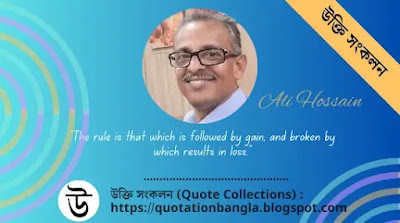Thomas Jefferson's quotes about War
Thomas Jefferson's quotes about War
“War is an instrument entirely inefficient toward redressing wrong; and multiplies, instead of indemnifying losses.”
—Thomas Jefferson
Read this Quote in Bengali
Know Source and Context of this Quote :
Thomas Jefferson made this statement in a letter to William Short on August 1, 1791. The quote reflects Jefferson's skepticism about the effectiveness of war as a means of resolving disputes and his belief that it often exacerbates suffering rather than providing justice.Context & Why He Said It:
At the time, Europe was embroiled in the French Revolutionary Wars, and Jefferson—then serving as the U.S. Secretary of State—was observing the conflicts with concern. He was generally opposed to unnecessary military engagements, favoring diplomacy and economic measures (like trade restrictions) over warfare.In the letter, Jefferson expressed his belief that:
- War is inefficient in correcting injustices.
- It tends to multiply losses (economic, human, and moral) rather than compensating for them.
- He preferred peaceful coercion (such as embargoes) as a more rational alternative to war.
This viewpoint aligned with Jefferson's broader republican ideals, which emphasized reason, commerce, and avoidance of entangling alliances or destructive conflicts. However, it’s worth noting that Jefferson later authorized military action (e.g., the Barbary Wars) when he deemed it necessary for national defense.
-----------xx----------
Here is the full relevant excerpt from **Thomas Jefferson’s letter to William Short** (August 1, 1791), where he makes this statement about war:
"The most successful war seldom pays for its losses. It is an instrument entirely inefficient toward redressing wrong; and multiplies, instead of indemnifying losses. I do not know, whether a course of collateral hostility, by embargo, prohibition of supplies, &c., might not bring the aggressor to reason, and avoid the appeals to the sword. But how far this might be applicable to the present case, is a question I cannot decide."*
*(Source: *The Papers of Thomas Jefferson*, Vol. 22, edited by Charles T. Cullen, Princeton University Press, 1986, p. 6.)*
---
### **Key Points in Context:**
1. **Recipient**: William Short was Jefferson’s protégé and acting U.S. diplomat in France during the French Revolution. Jefferson often shared philosophical and political reflections with him.
2. **Historical Moment**: Europe was on the brink of war due to rising tensions from the French Revolution. Jefferson, a supporter of the Revolution in its early stages, was wary of its violent turn and the potential for broader conflict.
3. **Jefferson’s Argument**:
- War rarely "pays for itself" economically or morally.
- It fails to redress grievances and instead creates more suffering.
- He suggests **economic measures** (embargoes, trade restrictions) as a smarter alternative to military force.
4. **Later Actions**: Despite this principle, Jefferson, as president (1801–1809), would later deploy the U.S. Navy against the Barbary States (1801–1805) after economic pressure failed, showing his pragmatism when diplomacy proved insufficient.
### **Why This Matters:**
The quote captures Jefferson’s Enlightenment-era idealism—rooted in thinkers like Montesquieu and Rousseau—that viewed war as irrational and destructive. Yet it also reveals tensions in his leadership, as he balanced principle with real-world demands.
"The most successful war seldom pays for its losses. It is an instrument entirely inefficient toward redressing wrong; and multiplies, instead of indemnifying losses. I do not know, whether a course of collateral hostility, by embargo, prohibition of supplies, &c., might not bring the aggressor to reason, and avoid the appeals to the sword. But how far this might be applicable to the present case, is a question I cannot decide."*
*(Source: *The Papers of Thomas Jefferson*, Vol. 22, edited by Charles T. Cullen, Princeton University Press, 1986, p. 6.)*
---
### **Key Points in Context:**
1. **Recipient**: William Short was Jefferson’s protégé and acting U.S. diplomat in France during the French Revolution. Jefferson often shared philosophical and political reflections with him.
2. **Historical Moment**: Europe was on the brink of war due to rising tensions from the French Revolution. Jefferson, a supporter of the Revolution in its early stages, was wary of its violent turn and the potential for broader conflict.
3. **Jefferson’s Argument**:
- War rarely "pays for itself" economically or morally.
- It fails to redress grievances and instead creates more suffering.
- He suggests **economic measures** (embargoes, trade restrictions) as a smarter alternative to military force.
4. **Later Actions**: Despite this principle, Jefferson, as president (1801–1809), would later deploy the U.S. Navy against the Barbary States (1801–1805) after economic pressure failed, showing his pragmatism when diplomacy proved insufficient.
### **Why This Matters:**
The quote captures Jefferson’s Enlightenment-era idealism—rooted in thinkers like Montesquieu and Rousseau—that viewed war as irrational and destructive. Yet it also reveals tensions in his leadership, as he balanced principle with real-world demands.





Comments
Post a Comment